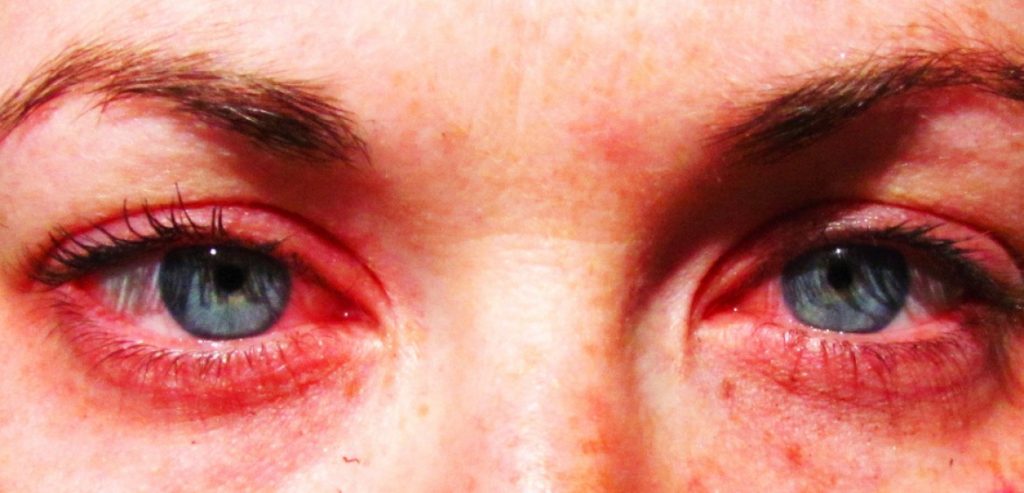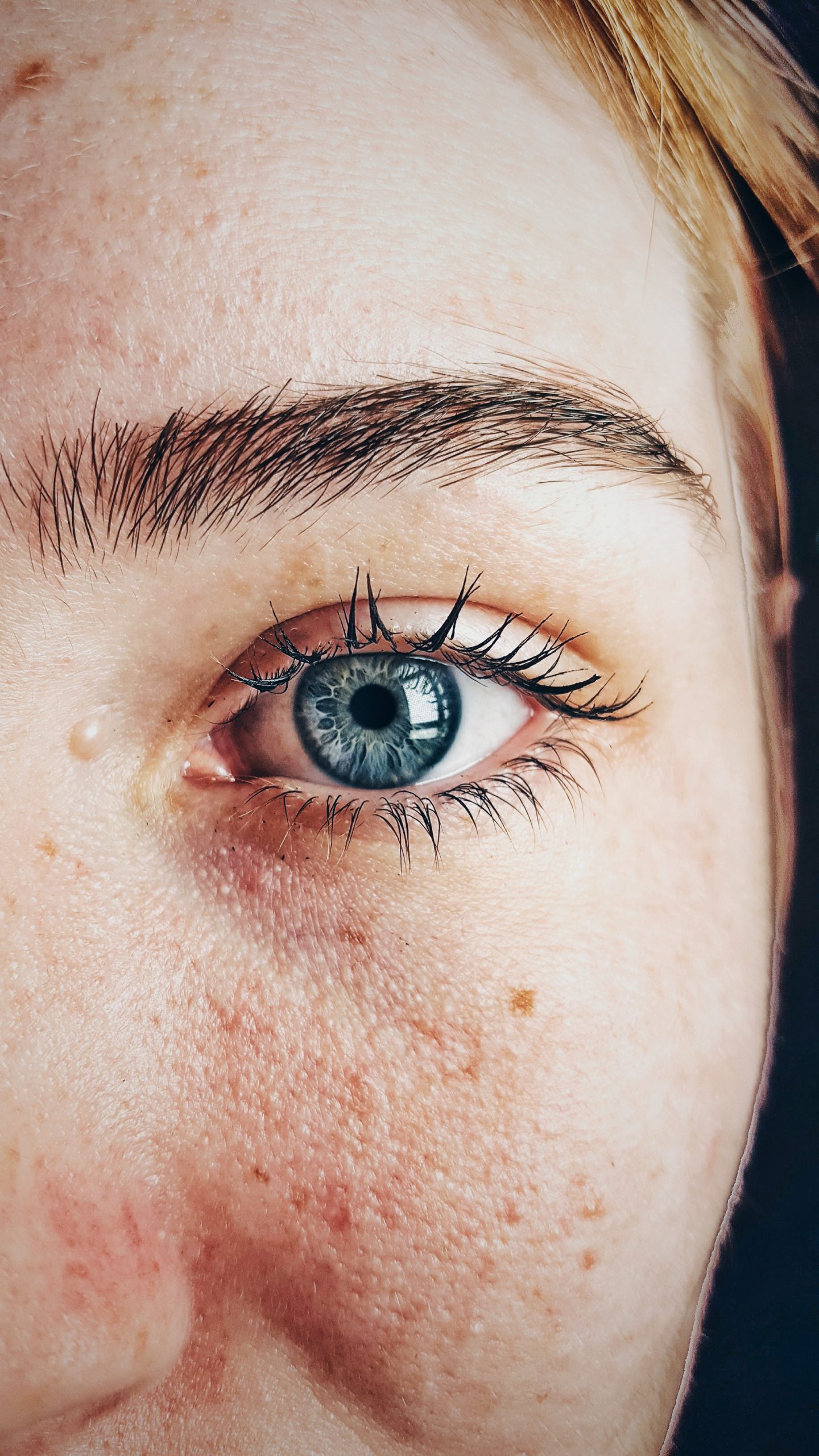Have you ever experienced watery, swollen or itchy eyes? Or maybe you may feel something in your eyes when there is nothing; it feels so uncomfortable. These are all signs of allergic conjunctivitis or an ocular allergy, simply known as eye allergy.
- Eye allergies are triggered mainly by the following:
- Outdoor allergens – pollens, leaves, sand, etc
- Indoor allergens – pets, dust, etc
- Lifestyle irritants – smoking, perfume, etc
Eye allergies are of different types. Nevertheless, these allergies can easily be avoided or treated if the allergens are spotted. Before going into the best ways to treat eye-related allergies, let’s look at the various types of eye allergies.

Types of Eye EYE ALLERGIES and Symptoms
There are five main types of eye allergies
- · Seasonal allergic conjunctivitis
- · Perennial allergic conjunctivitis
- · Vernal keratoconjunctivitis
- · Atopic keratoconjunctivitis
- · Contact allergic conjunctivitis
- · Giant papillary conjunctivitis.
Seasonal Allergic Conjunctivitis
Seasonal allergic conjunctivitis is the most recognised kind of allergy. It predominantly impacts people during spring or summer. Its common symptoms are:
- · Itchy eyes
- · Redness of the eyes
- · Torching eyes
- · Watery eyes
The itching may be uncomfortable, often making patients pat their eyes which can worsen the manifestation. Additional symptoms may include sneezing and hay fever. Individuals may also have puffy eyelids and may be sensitive to light.
Perennial Allergic Conjunctivitis
This sort of allergy is mainly provoked by dust or house allergens like pets etc. its symptoms are similar to that of seasonal allergic conjunctivitis but a bit lenient. This allergy usually occurs throughout the year unless its triggers are spotted and treated.
Vernal Keratoconjunctivitis
Compared to the first two allergies, vernal keratoconjunctivitis is more severe. This type of eye allergy may also occur throughout the year, while its symptoms get worse as the season changes. However, if vernal keratoconjunctivitis is not treated on time, it can further damage an individual’s vision.
Its significant symptoms include:
- · Itchy eyes
- · Discharge of thick snot from the eyes
- · Frequent tearing
- · Photophobia
- · Foreign body sensation
Statistics showed that vernal keratoconjunctivitis is primarily found in boys and youthful gentlemen. In addition, over 70% of people with this allergy have eczema and asthma.
Atopic Keratoconjunctivitis
While vernal affects younger individuals, atopic keratoconjunctivitis affects more aged individuals. This allergy is primarily found in men with a record of allergic dermatitis. Identical to vernal keratoconjunctivitis, this allergy can also occur throughout the year. Some of its symptoms include:
- · Intense itchy eyes
- · Torching eyes
- · Red eyes
- · Thick snot after sleep that may cause sticky eyelids.
If not treated, this class of allergy can further scar the cornea.
Contact Allergic Conjunctivitis
Contact allergic conjunctivitis occurs in people that use contact lenses. It is primarily due to the tears that cling to the lens. Its significant symptoms are:
- Prickly eyes
- The discomfort in contact lens
- Red eyes
- Discharge of mucous
Giant Papillary Conjunctivitis
This is chronic contact allergic conjunctivitis, also due to wearing contact lenses. Common symptoms of giant papillary conjunctivitis include:
- Puffy eyes
- Itchy eyes
- Blurry vision
- Discomfort in wearing contacts
- Foreign body sensation
Best Ways to Avoid or Treat Eye-related Allergies
The most suitable way to manage eye-related allergies like seasonal and annual ones is evading them. Triggers could be outdoor, indoor or your favourite pets. Of course, do not avoid your pets, but there are a few things you must be careful of.
Outdoor:
- At the period of the year when the pollen is at its peak, try and minimise the time you spend outdoors.
- Window fans can blow pollen into your house/office. Minimise using them
- Don’t forget to wear your eyeglasses when heading outdoors
- Do not rub your eyes with your hands; it can irritate and lead to other eye problems
Indoor:
- · Close windows at home or office. It is advised to use air conditioning.
- · Minimize exposure to dust, most especially indoors.
- · Maintain humidity of 30-50% at home to minimise mould
- · Use wet mops or rags instead of dusting
Pets:
- · Wash your hands thoroughly after petting your cute pets.
- · If you are allergic, restrict pets from entering your room
However, most eye-related allergens are airborne, which is why they can be challenging to avoid. If you happen to notice any symptoms, it is strongly advised to discuss with your optometrist to know the below options that will be best for you
Over the counter Medication
There is a variety of over-the-counter medications that can relieve eye allergies. Some of these include:
- · Artificial tears
- · Decongestant eyedrops
- · Oral antihistamines
Prescription Medications
- · Antihistamines eyedrops
- · Mast cell stabiliser eyedrops
- · NSAID eyedrops
- · Corticosteroid eyedrops
- · Allergy shots
- · Nonsedating oral antihistamine
Your eye care specialist should only prescribe any of the above treatments. Instead, book an appointment with Chadderton Opticians and have your eyes adequately examined.


